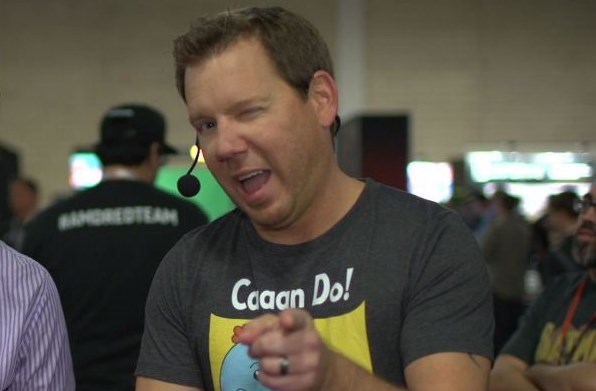Cliff Bleszinski warns that triple-A game development is 'nearly unsustainable'
Very few studios can afford it, and the results often aren't great.

Gears of War mastermind Cliff Bleszinski, whose Boss Key Studios is currently at work on the team-based multiplayer FPS LawBreakers, warned during an address at the Reboot Develop conference today that the triple-A game development business "is a nearly unsustainable model." As reported by GamesIndustry, Bleszinski compared the top tier of the industry to the American restaurant scene: "They're not bad, they're not great, they're just there."
It's not an unfamiliar argument: Games development is hideously expensive, and the games themselves aren't cheap. "$60 is still a lot of money to ask people for. And to ask them to make that bet multiple times per year? Gamers are picky, they're smart," he said. "This is a nearly unsustainable model, unless you're an Activision, 2K or a Sony."
That, naturally, leads to imitation rather than innovation, as developers and publishers who can't afford a flop—all but the biggest and richest of them, in other words—aim for the safety of familiarity. To get away from that, he suggested smaller studios aim for what he called double-A development: "Games that look and play great but pick their battles in terms of budget and marketing," and that are typically digital exclusive and/or free to play, like Warframe, Rocket League and Rust.
He also pointed out that "there's a lot of money in Asia," which feels particularly timely in light of the "launch"—actually a rebranding, but probably more portentous than that word implies—of Tencent's "WeGame" digital games platform this week, and the announcement of a number of exclusive publishing deals in China for games including Rocket League. Bleszinski's own LawBreakers, which was originally announced as a free-to-play game but switched to a conventional purchase model in March 2016, is being published by the Japanese company Nexon—and it will not carry a triple-A-level $60 price tag.
Bleszinksi also took touched on the topic of VR, saying that he's currently pitching a VR project but is struggling to attract sufficient investment. He acknowledged that the technology required for VR is both expensive and intimidating, but said that the situation will improve. "If I were Oculus, Facebook or Vive, I would have kiosks at every major retail location, and a tech team that comes round to set it all up properly," he said. "But like all technologies, it'll get better, it'll get faster. But give it a little bit of time."
The biggest gaming news, reviews and hardware deals
Keep up to date with the most important stories and the best deals, as picked by the PC Gamer team.

Andy has been gaming on PCs from the very beginning, starting as a youngster with text adventures and primitive action games on a cassette-based TRS80. From there he graduated to the glory days of Sierra Online adventures and Microprose sims, ran a local BBS, learned how to build PCs, and developed a longstanding love of RPGs, immersive sims, and shooters. He began writing videogame news in 2007 for The Escapist and somehow managed to avoid getting fired until 2014, when he joined the storied ranks of PC Gamer. He covers all aspects of the industry, from new game announcements and patch notes to legal disputes, Twitch beefs, esports, and Henry Cavill. Lots of Henry Cavill.

